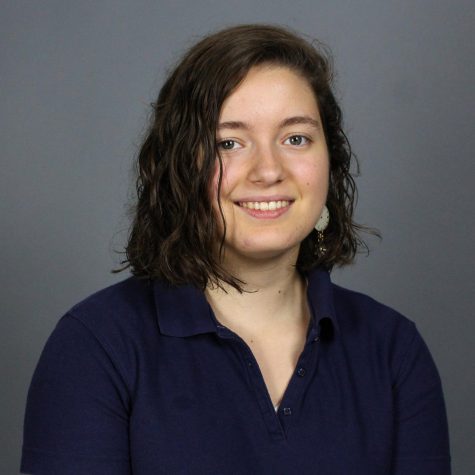
Sophia is a senior, and this is her third year on The Review. She is also an avid baker and music lover.
November 5, 2018
Talk of the midterm elections buzzes around campus, but it is not the only election happening.
Students in Russell Hardin’s U.S. Government and Politics class have been participating in a simulated election as part of their curriculum. Two teams in each class campaign for Texas senator and two teams run for primary. The goal of the project is to evaluate how an election impacts the way students perceive candidates.
The Government students began the project mid-September after learning about the constitutional foundation of the United States. Hardin had his students take a political typology quiz that determined each person’s position on the political spectrum, then he divided the students into campaign teams based on those results.
“Students aren’t having to compromise their political ideology for this project,” Hardin said. “They’re allowed to stay in line with what they believe.”
Illustration by Mia Fares.
Each team consists of the candidate, a campaign manager and a press secretary. Students are responsible for creating campaign ads, a website and having debates and press conferences for the mock election. The only aspect of a real campaign that is not included in the simulation is finance and fundraising. Hardin even made it an optional component to volunteer for five hours on a real campaign.
“It was fun to go over the issues and what they meant to me,” said senior Harrison Fernelius, a mock candidate for Congress whose campaign team met at a local tea house and prepared for the mock debate.
While running an election was a largely serious endeavor, some of the candidates found humor in political tactics.
“A lot of political debates center around small quips and little jabs, which is one thing a lot of people don’t think about in a debate,” senior congressional candidate Stephen Kim said. “Coming up with very specific policies to answer these questions was incredibly important because I wanted to make sure the people were comforted, but also coming up with little snide remarks on the side was really fun.”
The press secretaries created a poll for the eighth grade Civics students, who are the constituents, as well as moderating the press interviews and debates and making a podcast. The Middle School students were also given full access to the candidates’ websites, interviews, commercials and debates.
Since the class is no longer being taught as an AP course this year, Hardin has the freedom to spend more time talking about current events. One day last month the class spent the period watching Brett Kavanaugh’s Senate hearing.
Because the majority of his students tend to be more liberal, Hardin’s challenge is to ensure that more conservative students do not get drowned out or devalued. He says that both the conservative and liberal students know how to respectfully discuss.
“Our students are great at recognizing that just because they have a different view, it’s not a character judgement,” Hardin said. “It’s simply a different view.”
In the end, Hardin wants the class to be a place where students can appreciate those with opposing viewpoints and who have legitimate arguments that deserve to be heard. The class focuses on the extent to which the government works in relation to the constitutional system.

Sophia is a senior, and this is her third year on The Review. She is also an avid baker and music lover.